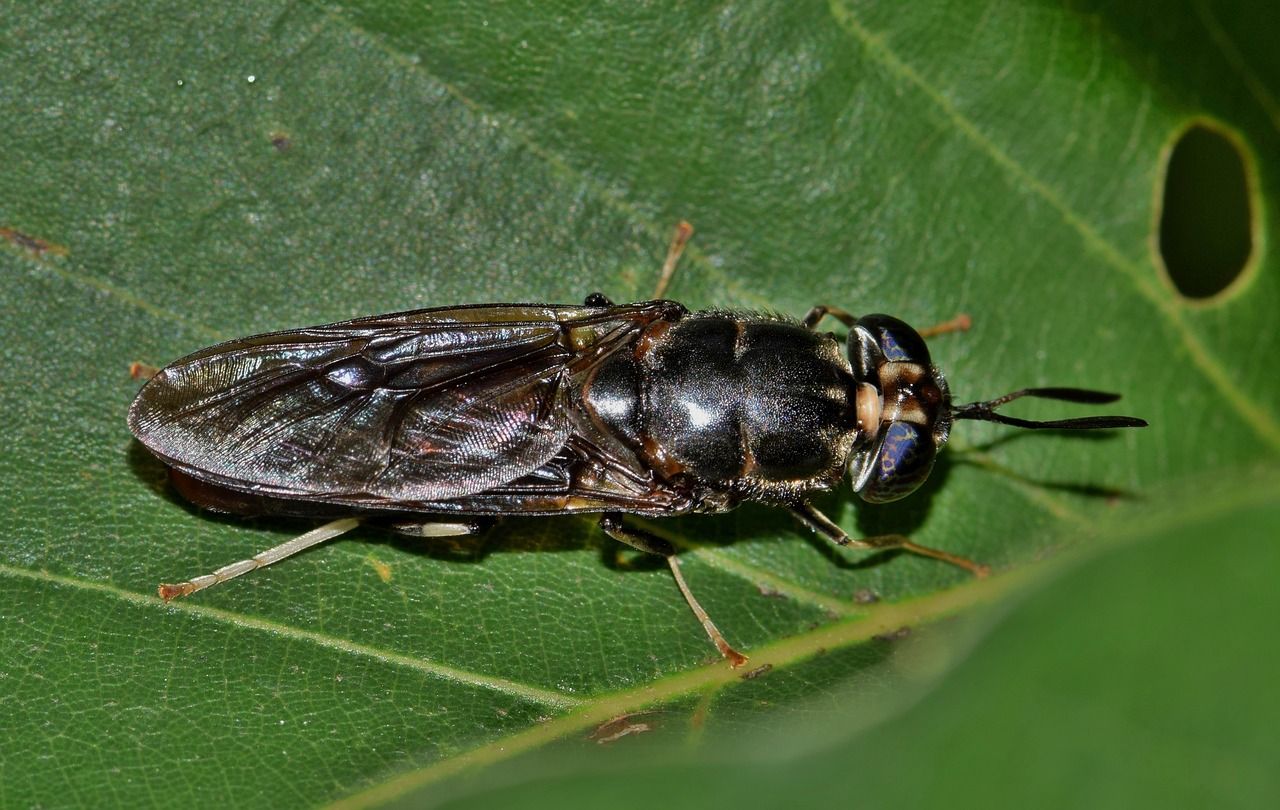AgriProtein, a South African startup growing insects for animal feed using waste, has raised $17.5 million in growth stage funding from strategic investors in Europe, North America, and Asia.
This values the company at $117 million making AgriProtein not only one of the best-funded insect farming businesses globally with around $30 million raised to-date, but the most valuable, according to Jason Drew, co-founder. The funding will be used to build its second industrial black soldier fly-farming factory in South Africa and to license its technology into other regions.
Launched in 2008 by Jason and his brother David, AgriProtein was one of the first companies to start farming flies at any scale. Currently, the aim is to provide a natural and cost effective alternative to fishmeal, which is widely used in the poultry and fish farming industries. The business will look at replacing other types of animal feed in due course and also produces a crop supplement byproduct.
“The challenge was how to produce any meaningful volumes for feed,” says Jason Drew. “And there was only one way to go, and that was to build an industrial factory.”
After a couple of angel rounds of funding from their own pockets and those of friends and family, the Drews originally raised $12 million to build the first industrial size factory finished in 2014.
This funding came almost out of the blue from a group of Forbes 500-listed individuals that approached the Drews after hearing of their efforts. They both have impressive backgrounds in launching and running businesses, and Jason Drew has written several books including ‘The Protein Crunch’ which he co-authored in 2011. He also worked at Oxitec, an insect control company which was acquired by Intrexon in 2015. His brother was also awarded the Financial Times technology prize for innovation in 2000, so they are well known in certain circles.
“We weren’t really ready to accept funding but asked these well-known individuals to come and take a look at the factory thinking that would probably exclude some of them! But four of them made the journey to take a look and ended up helping us fund the first industrial size factory,” said Jason.
These investors contributed to the latest round as well, which will see AgriProtein more than double the size of its existing factory.
In a process AgriProtein calls “nutrient recycling”, the company feeds fly larvae on waste coming from municipalities, a local shopping mall, educational institutions, hospitals and food processors. It creates three products, a soil enhancer for crop producers called MagSoil, and two feed products MagOil and MagMeal.
After extracting the recyclables, like plastic, AgriProtein crushes the waste which turns anything organic into a paste. That paste feeds the larvae. Then the company harvests and separates the mature larvae from the MagSoil and processes it into MagOil and MagMeal.
Using its army of 8.5 billion flies, it can now recycle 250 tonnes of waste per day, boosting larvae production to 50 tonnes per day, according to its recent press release.
The first plant, which came online this year, will produce 7 tons of MagMeal, 3 tons of MagOil and 20 tons of MagSoil per day at full capacity.
It’s been a relatively slow process to today with lots of challenges in engineering and design particularly, Drew tells AgFunderNews, but the company is now ready to license its IP, technology, and know-how to interested parties in other parts of the world. It’s already working with partners in the US to this end and the strategic investors in the latest round (these include family-run businesses in Europe) will help with this global expansion through their connections, he added.
The Drews have relatively modest targets and are not intending to dominate the whole market for fly-farming and alternative animal feed, but are keen to see the space overall develop and expand.
“Even if we get less than 1% of the animal feed market we will be happy, and the first step is to replace fishmeal; we will move onto other alternative protein products later,” said Jason.
Are you a startup innovating in the fly farming and insect space? Email [email protected]





